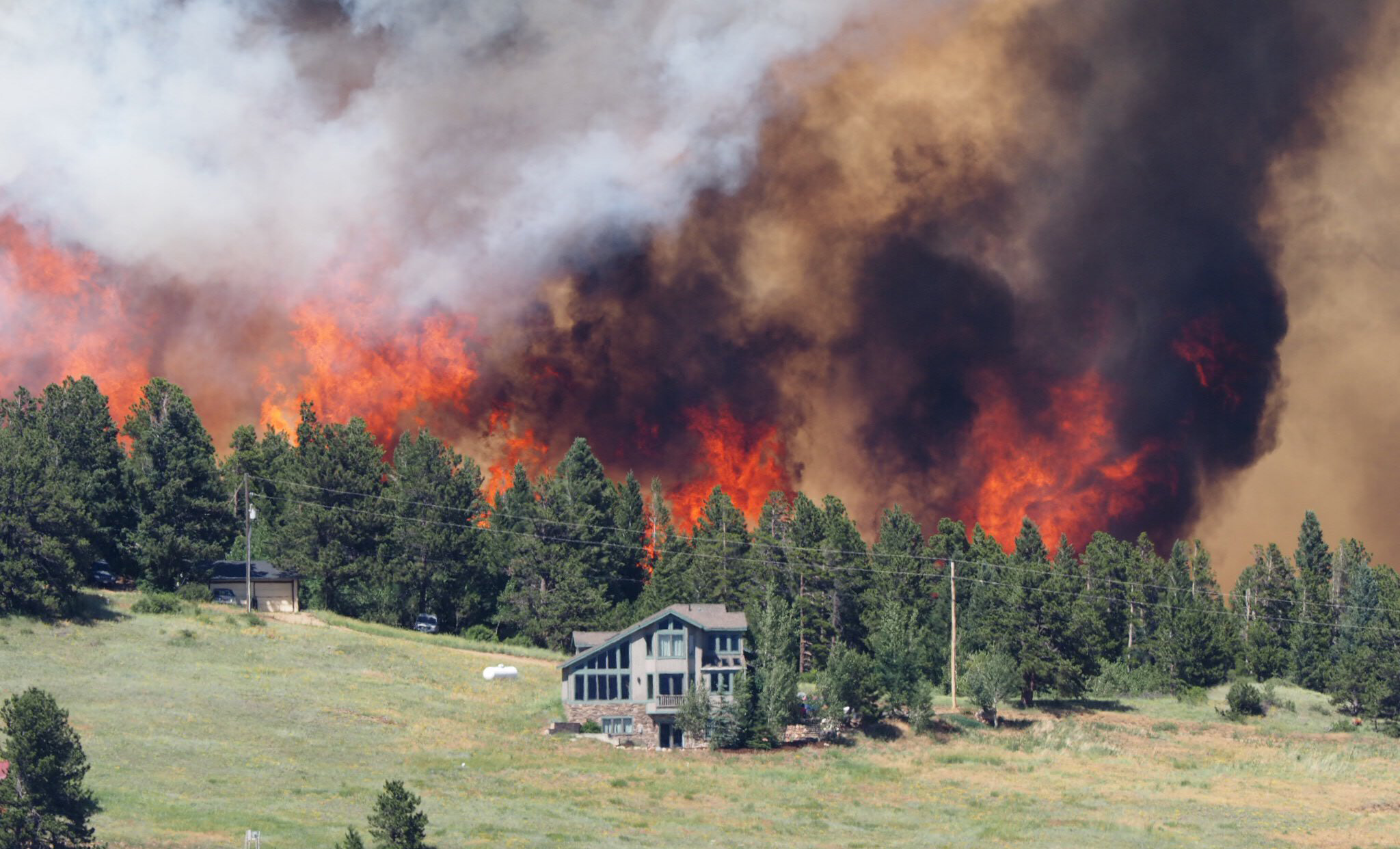Boulder County and other Colorado communities are already experiencing the impacts of a warming climate, including negative outcomes on the environment and public health.
Climate Change in Boulder County
Environmental Impacts of Climate Change

- More heat: hotter summers and warmer winters, leading to more rain and less snow
- Increased frequency and intensity of flooding
- Longer periods of drought
- More wildfires: burning twice as many acres each year as compared to before 1980
- Widespread beetle infestations
- Water shortages: Colorado’s precipitation has decreased 20% in the last century, and water supplies are already stretched thin. Less snow, melting earlier, could leave Boulder County with less water during hotter summers.
- Economic impacts: tens of millions in road damage from increased heat; increased water flow resulting in millions in bridge damage
Health Impacts of Climate Change

- Poor air quality from wildfires and high ozone days leads to more cardiovascular, respiratory, and allergy-related illness.
- Natural disasters lead to increased exposure, physical injury, and even death:
- The 2013 Flood resulted in 2 deaths in Boulder County, nearly 19,000 damaged homes, and more than 1,500 destroyed homes.
- The Marshall Fire and Wind Event in December 2021 killed 2 people and destroyed over 1,000 structures including homes and businesses
- High heat days lead to dehydration, heat stroke, and aggravated cardiovascular and respiratory illness.
- Children, the elderly, and Boulder County residents living in poverty are more vulnerable to heat-related illness.
- In the Denver area, the annual frequency of 100 degree days has increase by more than 250% on average since 1967-1999.
- Changing ecosystems can spread severe illness.
- Increased number and intensity of vector-borne diseases like West Nile virus, hantavirus, and tick-related diseases.
- Increased number and intensity of waterborne diseases like giardiasis, cryptosporidiosis, and schistosomiasis.

